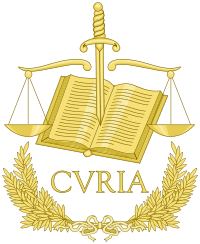
The Urgenda judgement: legislature and government under intensive judicial supervision
Writing something about the Urgenda judgement (Rechtbank Den Haag 24 June 2015, ECLI:NL:RBDHA:2015:7145) might seem abundant at this point. After all, a lot of literature about the judgement has already been published. Is the judgement really so special? That can, with good reason, not be denied. The Urgenda Foundation is the organisation for sustainability and…
Read more
Should the national day be considered as the birthday of the mother country? The conflict between two kinds of outlooks on the concept of “country”
Sjaak Zhang During the past week, China was celebrating its 67th national day; meanwhile, an intense controversy as to whether the national day should be considered as the birthday of the mother country arose, which has demonstrated Chinese people’s confusion about what constitute a country. This blog seeks to briefly explain where such confusion…
Read more
Duality or Complementarity?The Political and Legal Orientations of the Chinese Petitioning Mandate
Cong-rui Qiao On 14 September 2016, the Chinese State Bureau for Complaint Letters and Visits (“Bureau”) in Beijing saw 24 lawyers providing legal advice for the petitioners. This was the first experiment of the joint-program between the Ministry of Justice and the Bureau, which aims to resolve litigation-related petitions. With much attention given to the ongoing reforms,…
Read more
Honest judges, trustworthy judges
A few weeks ago, a journalist announced on VGNyhetter, a major Norwergian news website, that 19 Norwegian judges have heard cases in which insurance companies were parties, while the judges had shares in these insurance companies. The journalists Frank Haugsbø and Geir Olsenen have skilfully embroidered their story, including stories from the parties who lost…
Read more
The BREXIT and the international ambitions of the Dutch judiciary
Eddy Bauw Earlier this year, the Council for the Judiciary released a plan to establish a Netherlands Commercial Court (NCC). In the plan it was stated that the NCC would start on the 1st of January 2017. By now, a starting date of July 1st, 2017 seems more realistic. The upcoming Brexit makes this, in…
Read more
Brexit: why EU leaders should hold their horses
Bas van Bockel According to art. 50 of the Treaty on European Union (“TEU”, Lisbon version), “any Member State may decide to withdraw from the Union in accordance with its own constitutional requirements”. In February of this year the European Parliament published a briefing informing citizens and politicians of the backgrounds and the debate on…
Read more
Why the Tribunal Dealing with the South China Sea Dispute Should Step Aside to Make Way for a Negotiated Settlement
Tom Zwart Increasingly, in the West, in the class rooms of law schools and offices of foreign ministries, international law is being associated exclusively with courts and tribunals. The idea seems to be that something can only be regarded as law if it emanates from an international court. This judicialization of international law overlooks the…
Read more
When It Rains, It Pours: Tracking the recent developments in international criminal justice
Brianne McGonigle Leyh International criminal justice has a reputation for being slow and progressing at a ‘glacial’ pace. For example, it took the International Criminal Court (ICC) ten years before it handed down its first judgment in the Lubanga case after it started operating in 2002. Similarly, the International Criminal Tribunal for the former Yugoslavia…
Read more
The Unity of Law 3: A step towards a definition and instruments that can optimize the unity of law
Introduction In my previous blog I gave a modest impetus to define the concept of ‘the unity of law’ and I have discussed a number of instruments which in any case (also) aim to optimize the unity of law. The following four instruments are distinguished: institutional reform, preliminary ruling procedure, coordination and a differentiated discursive…
Read more
The claim industry as object of research
Eddy Bauw Under the headline ‘The claim industry’, the Volkskrant on Saturday the 27th of February devoted attention to the increase in the number of collective redress procedures in the Netherlands. The figures presented by the newspaper are clear: organisations who allegedly represent half a million people, have in total claimed 1.6 billion euros in…
Read more

